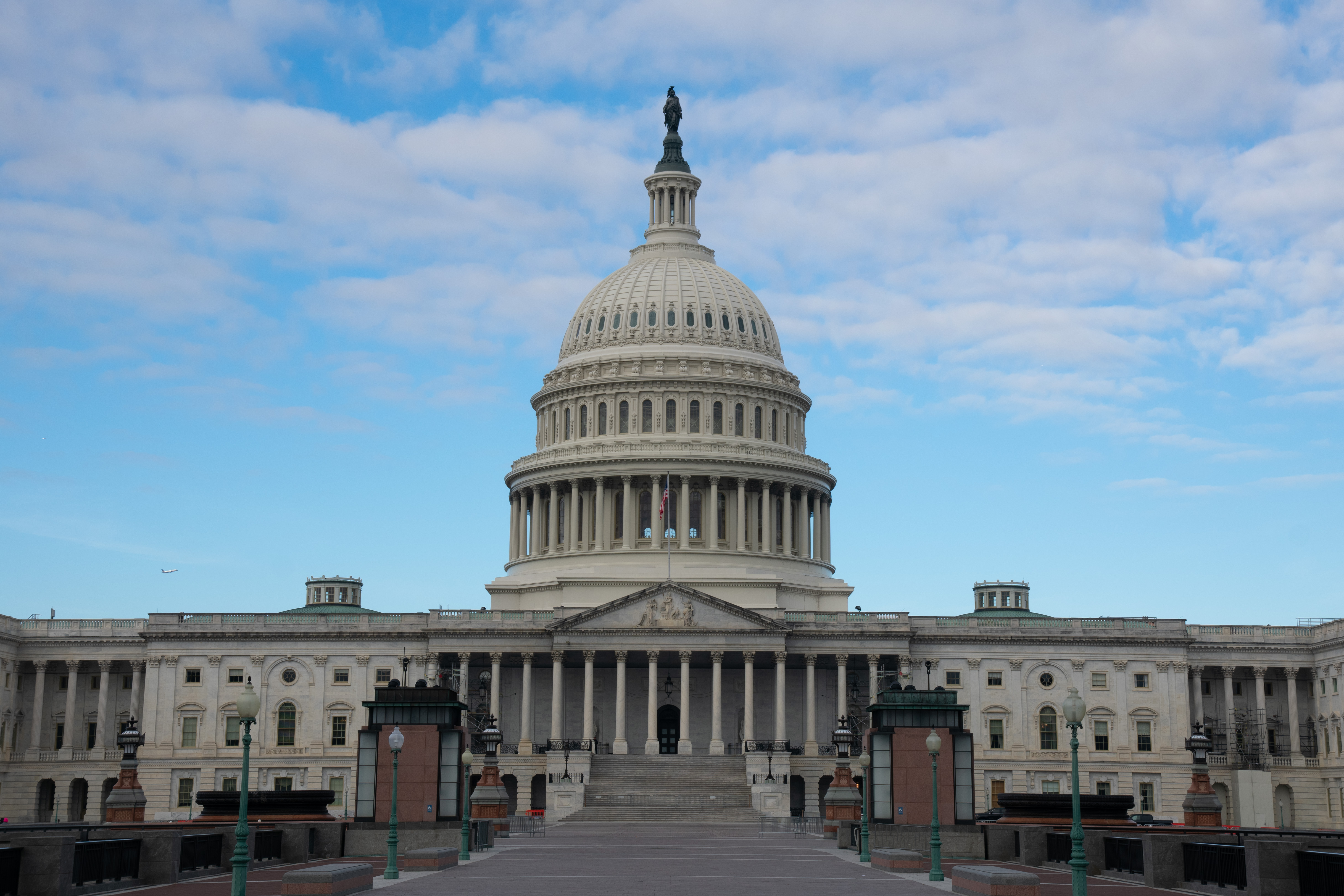The Class of 2023 — the only remaining class to have experienced Harvard both before and after the Covid-19 pandemic — has encountered a national atmosphere fraught with political tensions during its four-year tenure, from the outbreak of Covid-19 and the Biden-Trump showdown to the war in Ukraine and the Supreme Court decision in Dobbs v. Jackson.
Yet despite this increasing polarization across the country, the Class of 2023 retains a relatively homogeneous political makeup: The majority of surveyed students identified as progressive and affiliated with the Democratic Party, and students overwhelmingly expressed disapproval of former president Donald J. Trump.
Most strikingly, only a small minority — nearly 10 percent — answered that they believe the country is headed in the right direction. The majority — 66 percent — of students said they think the country is on the wrong track, while the rest indicated they are “unsure.”
Political Allegiances
Of all surveyed students, 65 percent identified as progressive or very progressive, only 12 percent were conservative or very conservative, and 22 percent were moderate. Just 1 percent of students — five respondents — said they were apolitical. These numbers align with the class freshman survey, taken in 2019, in which 13 percent identified as conservative, 23 percent as moderate, and 65 percent as liberal or very liberal.
Female survey respondents were slightly more progressive than male respondents. Of female respondents, 69 percent said they were progressive, compared to 59 percent of male respondents. On the flip side, 9 percent of female respondents said they were conservative, compared to 15 percent of male students. All non-binary students identified as progressive.
Most progressive students also identified as being less religious: 10 percent of progressive respondents said they were extremely or very religious, and 73 percent of progressive respondents said they were not very religious or not religious at all. Comparatively, 42 percent of surveyed conservative students said they were extremely or very religious, and 31 percent said they were not religious, though the conservative sample size was much smaller.
Seniors surveyed also tended to affiliate with people who share their political views. More than 64 percent said all or most of their closest friends share their politics, with 9 percent saying all their closest friends are politically aligned with them. Progressive students were more likely to stay among themselves, with 82 percent saying they align with most or all of their close friends — more than double the rate among conservative and moderate students.
Many students’ social preferences translated over to their romantic ones. More than half – 52 percent – said they would not enter into a relationship with someone who supported the nominee of the opposite party in the last election. Just 28 percent said they would date someone who voted differently, while 21 percent said they were unsure. Conservative students were more likely to date across party lines, with 79 percent indicating they would enter a relationship with someone who supported the opposing party’s nominee compared to just 12 percent of progressive students.
Policy Stances
In line with the class’ political composition, 91 percent of students viewed former President Donald Trump unfavorably, with only 4 percent saying they viewed him favorably. Florida Governor Ron DeSantis, a potential Republican presidential candidate, posted slightly better numbers: 8 percent of students said they like DeSantis, and 73 percent said they do not. Overall, 78 percent of surveyed seniors disapprove of the Republican Party, and 8 percent approve.
The Democratic Party, however, did not receive unanimous approval from students: 39 percent said they view the party favorably, while 40 percent said they have an unfavorable impression. Students were also split in their opinions on President Joe Biden and Vice President Kamala Harris, who garnered 48 percent and 32 percent of respondents’ approval and 32 percent and 37 percent of respondents’ disapproval, respectively.
Students were largely unified in their disapproval of the 2022 Supreme Court’s Dobbs v. Jackson decision overturning constitutional abortion protections: 79 percent of students disapproved, and only 9 percent said they approved. As for race-conscious college admissions, on which the Supreme Court will adjudicate this summer, 63 percent said they support affirmative action, and 15 percent said they do not. Seventy-seven percent of students also reported that they view the #MeToo movement favorably, while 7 percent of respondents viewed it unfavorably.
Approximately 61 percent of students approved of U.S. aid to Ukraine in the Russia-Ukraine war; 11 percent disapproved. Sixty-one percent saw Elon Musk’s purchase of Twitter as a negative, and 13 percent saw it as a positive. Just under one-third of students said they support the pro-Palestinian Boycott, Divestment, and Sanctions movement, while 18 percent did not; a quarter said they had no opinion, and another quarter said they lacked enough information.
